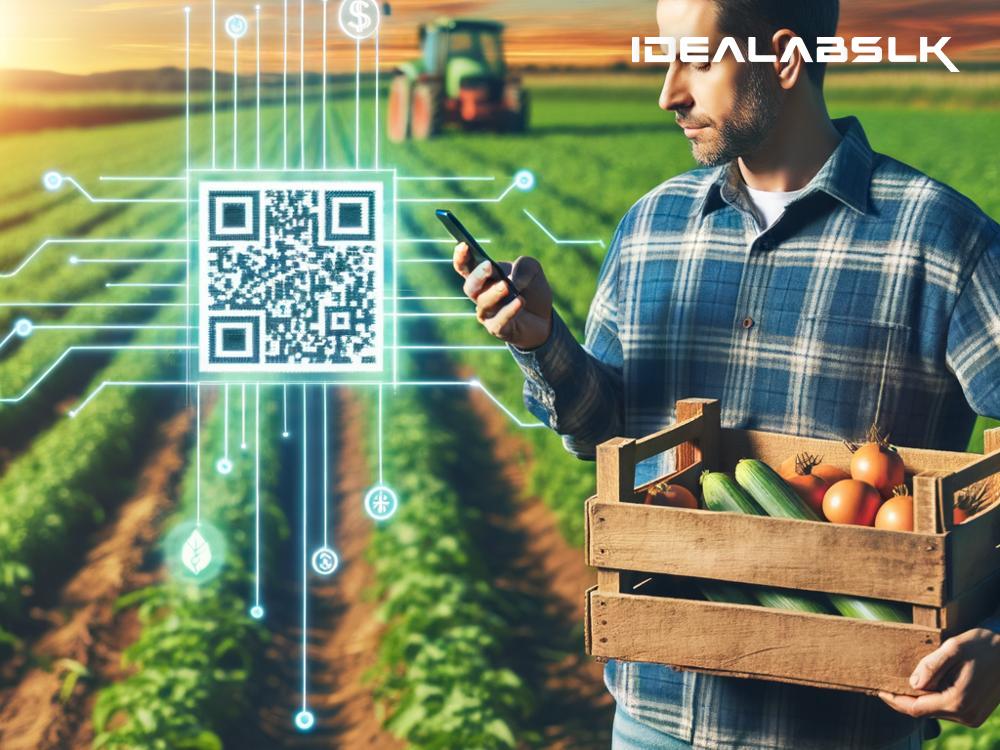Blockchain for Food Traceability in Developing Countries: A Game-Changer
In today’s world, knowing where your food comes from and how it has been produced is more important than ever. With growing concerns over food safety, sustainability, and ethics, consumers are demanding transparency in the food supply chain. This is where blockchain technology comes into play, offering a revolutionary solution, especially for developing countries. But what exactly is blockchain, and how can it transform food traceability in these regions? Let's dive in.
What is Blockchain?
Imagine a digital ledger that is secure, transparent, and tamper-proof. That's blockchain for you. Instead of being stored in one location or managed by a single entity, this ledger is distributed across a network of computers, making the data on it verifiable and accessible to everyone involved but nearly impossible to manipulate. Originally developed for digital currencies like Bitcoin, blockchain is now finding its way into various sectors, including the food industry.
The Current Struggle with Food Traceability
In many developing countries, tracking the journey of food from farm to table is fraught with challenges. The supply chain involves multiple stages—farming, processing, packaging, and distribution—and each stage has its own set of records, often maintained manually. This fragmented and opaque system makes it difficult to trace any issues back to their source. As a result, when a food safety incident occurs, it's hard to pinpoint the origin, leading to widespread panic, food wastage, and financial losses for farmers and suppliers.
How Blockchain Can Help
Blockchain can revolutionize this system by providing a singular, immutable record of every transaction or movement of food through the supply chain. Here’s how:
- Transparency: With each product being assigned a digital passport on the blockchain, stakeholders can trace its journey from farm to supermarket shelf. This transparency builds consumer trust and can even enhance brand loyalty.
- Speed: In the event of a food safety issue, blockchain can rapidly identify the source, significantly reducing the time it takes to recall contaminated products. This efficiency can save lives, reduce waste, and protect the reputations of businesses involved.
- Reducing Fraud: The immutable nature of blockchain makes it nearly impossible for records to be altered or forged. This reduces fraud, ensuring that claims made about a product, such as organic or fair-trade certifications, are genuine.
- Empowering Small-Scale Farmers: In developing countries, small-scale farmers often get lost in the complexities of the supply chain. Blockchain can provide them with a digital footprint, offering visibility and a platform to compete on a global scale.
Real-World Applications
Several initiatives across the globe are already harnessing blockchain for food traceability:
- In countries like India and Ethiopia, blockchain is being used to trace the supply chain of coffee, from the farmers to the consumers, ensuring fair compensation and authenticity of the produce.
- Some African countries are utilizing blockchain to track the production and certification of sustainable crops, giving consumers the confidence that they are making ethical choices.
- In Southeast Asia, blockchain initiatives are ensuring the traceability of seafood, combating illegal fishing practices, and ensuring the sustainability of marine resources.
Challenges and the Way Forward
While the potential of blockchain for improving food traceability in developing countries is immense, there are hurdles to overcome. These include technological infrastructure, digital literacy, and governance issues. Furthermore, for blockchain to be truly effective, participation across the entire supply chain is required. This means that large-scale adoption and cooperation among various stakeholders are crucial.
To move forward, governments, NGOs, and businesses must collaboratively work on creating enabling environments. This includes investing in infrastructure, providing education and training on digital technologies, and fostering partnerships across the food industry.
Conclusion
Blockchain technology holds the key to transforming food traceability in developing countries, making the supply chain more transparent, efficient, and secure. While challenges exist, the potential benefits for food safety, farmer empowerment, and consumer trust are too significant to ignore. By embracing this technology, we can move towards a future where the journey of food from farm to table is not a mystery, but a story shared with and valued by everyone involved. This, in the end, could be one of blockchain’s most impactful legacies in our global quest for a more sustainable and just food system.

